Champions of Change Blog
Giving Children a Foundation for Learning
Posted by on June 17, 2013 at 4:57 PM EDTHarriet Henderson Coalter is being honored as a White House Champion of Change for her leadership and commitment to libraries and museums around the United States.
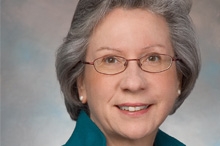
I have worked in smaller cities and in larger metropolitan areas, in communities with limited assets and in communities with abundant assets – but the issues tend to be the same. No matter where we live, people want to be secure, to be successful, to find meaningful work, and to have meaningful relationships. No matter where we start in life, unless we have a solid educational foundation, it’s almost impossible to end up as secure and successful adults. No matter the size of the community, it takes cooperation and commitment to see positive change take place.
I am fortunate to have found a career in public libraries, and through them, help establish that solid educational foundation for people.
At Richmond Public Library, we have focused on young children and their education, and have engaged with a variety of community agencies to try to improve school readiness. We have an early literacy coordinator and a parenting education coordinator who work almost entirely outside of the library. We engage parents and child care providers in the six pre-reading skills that children need to develop: print awareness, letter knowledge, phonological awareness, vocabulary, narrative skills, and print motivation. We encourage families to read, sing, write, talk, and play with their young children – all activities that help children develop these pre-reading skills. We empower parents through classes that build their knowledge of child development stages, helping them address the many challenges of raising a child.
Learn more about EducationDiversity-Centered Programming Enhances Cultural Understanding
Posted by on June 17, 2013 at 4:52 PM EDTGloria Tibbs is being honored as a White House Champion of Change for her leadership and commitment to libraries and museums around the United States.
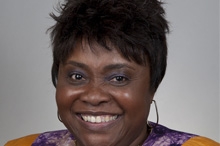
In an increasingly diverse nation it is critical that institutions of higher education engage both their on-campus population and the community at large. As the largest, most comprehensive academic research library in the Kansas City metropolitan area, the UMKC Libraries have observed this mandate and put into place numerous opportunities for students, faculty, staff, and community residents to experience meaningful interactions with each other on a number of different topics. I am honored to have helped collaboratively create programming that directly impacts the UMKC Libraries’ initiatives in community engagement.
These programs have largely been conversation-based and have focused on including a broad-based, diverse, and non-traditional series of partners that represent a cross-section of the communities we serve. The partners bring diverse perspectives, experiences, and cultures and together they produce programs with impact.
Examples of our diversity-centered programming include:
The African American Read-In – is a national literacy initiative and Black History Month program that I launched it at UMKC in 2010. It is a collaboration between university staff, faculty, even classes of inner-city high school students that brings the works of well-known authors to life. At each Read-In, several participants are brave enough to share their own creative works! Attendees report that it is a powerful experience, which is reflected in this UMKC video.
Learn more about EducationCatalysts for Change: Museums and Library Partnerships in the 21st Century
Posted by on June 17, 2013 at 4:21 PM EDTElizabeth Babcock is being honored as a White House Champion of Change for her leadership and commitment to libraries and museums around the United States.
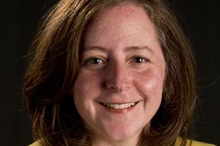
I’ve always been drawn to museums and libraries, perhaps because they embody principles I cherish—equitable access to educational opportunities, cultivation of curiosity about the world, a commitment to care for our planet, and respect for cultural diversity. My own path has reinforced the importance of these values to me. I’ve explored a wide range of careers as an anthropologist, community organizer, user experience researcher, teacher, and most recently, museum educator.
At the California Academy of Sciences in San Francisco, where I lead our public engagement, exhibits, and education teams, I put these values into action each day. My team and I share the scientific and educational resources of this natural history museum, planetarium, and aquarium so the public can connect with the natural world and advocate for the biodiversity and sustainability of life on our planet.
I am honored to be recognized as a Champion of Change, representing one of the many innovative projects stemming from library-museum collaboration. The San Francisco Public Library, the California Academy of Sciences, KQED, and the Bay Area Video Coalition have created a digital learning lab and a regional youth program network to equip young people with the 21st century skills they need to make community contributions. We have been supported by a grant from the Institute of Museum and Library Services and the involvement of many other organizations and foundations.
Our learning network has a STEAM focus (science, technology, engineering, art and math), leveraging the unique technology, science, and art resources of the Bay Area. It aims to provide teens with the access and skills they need to use emerging technologies, and to transform them from media consumers to media producers. We also hope to encourage interest in STEAM areas through multidisciplinary experiences and leadership opportunities.
Learn more about EducationThe Nature of Childhood
Posted by on June 17, 2013 at 4:13 PM EDTDave Becker is being honored as a White House Champion of Change for his leadership and commitment to libraries and museums around the United States.
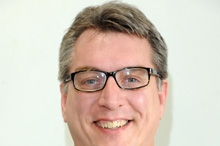
Like many people of my generation, a good part of my childhood was spent exploring, playing, and learning outside. Growing up in a midsize farming community in Michigan, I spent hours in the woods, climbing trees, building forts, catching frogs, and getting as dirty as possible. I didn’t know how valuable these experiences were until I became a parent. For my own children to have any of these experiences, I had to help make them happen. My children needed me and other adults to provide the spaces and opportunities, which are rapidly disappearing as access to nature becomes more and more removed from the human experience. This has become a central commitment of my work with children and families.
For the past 12 years, I have had the good fortune to work for an organization that shares my commitment to connecting children with nature: the Chicago Zoological Society (CZS). The CZS Early Childhood Initiative, known as NatureStart, is connecting children with nature with the help of an incredibly talented team of people. It is my honor to represent them and accept the Champaign of Change award on behalf of them and CZS.
A major breakthrough in our NatureStart Early Childhood Initiative occurred in 2001 when we opened Hamill Family Play Zoo. This groundbreaking exhibit is firmly rooted in an understanding of child development, play, and learning, and it applies new understandings from the field of conservation psychology—the study of the relationships between people and nature—about how children develop positive relationships with the natural world. The exhibit includes a variety of indoor and outdoor settings in which young children can garden, play in the woods, build forts, make mud pies, look for bugs, meet animals up-close, pretend to be animal, and help care for animals in ways that are meaningful and relevant for them.
Learn more about EducationTransforming Communities through Child-Centered Learning
Posted by on June 17, 2013 at 2:41 PM EDTCheryl McCallum is being honored as a White House Champion of Change for her leadership and commitment to libraries and museums around the United States.
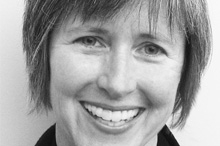
I believe in “learning by doing,” which is why I fell in love with the Children’s Museum of Houston the minute I walked in the building 20 years ago. Since that time, I’ve had the great fortune of being a part of the team that furthers our mission to “transform communities through innovative child-centered learning” in one of the most dynamic and diverse large cities in the nation. It’s a great honor to be recognized as a White House Champion of Change for this work, helping to provide personalized learning experiences to each child, parent, nanny, grandparent, and teacher who visits us.
It’s no secret that today’s students are faced with myriad challenges that are hard to surmount. One of our driving goals at the museum is to partner with parents and schools to make sure that children have the well-rounded and relevant learning experiences they need to be successful. Schools can’t offer everything that children need, especially since time in the classroom only amounts to about 20 percent of a child’s waking hours during a year. The Children’s Museum of Houston is dedicated to helping make the most of the other 80 percent to advance learning and achievement.
One of my recent stories about our impacts came from a child who participated in the first year of Summer of Learning, a program we implemented with the Greater Houston YMCA in 2012. The museum developed the curriculum and instructional strategies and trained YMCA summer camp staff to implement the program for elementary school aged campers. At the end of the summer, one of the campers asked a YMCA center director, “Ms. Lori, will we get to do science every day next year when we go back to school?” This one quote sums up quite nicely the passion for learning we are trying to engender with the museum’s programming.
Learn more about EducationWe Could All Use a Level Up
Posted by on June 14, 2013 at 6:03 PM EDTMatthew Winner is being honored as a White House Champion of Change for his leadership and commitment to libraries and museums around the United States.
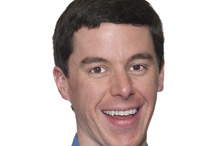
In 1989 I was asking my elementary school librarian if she had any books on Nintendo or the Super Mario Brothers nearly every time I visited the library with our class. The language of my childhood friendships included unrelenting talk of end-game bosses, secret warps, and unlocking extra lives via the Konami code. Not surprisingly, today we rarely go a week in our elementary school library without one of my students requesting video game-related books or content. But while games may have once been perceived as a distraction or viewed strictly for their entertainment value, I believe video games play a unique role in today's 21st century classroom. It is for this that I am honored to be recognized as a White House Creating Lifelong Learners Champion of Change.
My work as a teacher librarian in an elementary school over the past six years has afforded me a number of opportunities to rethink the way we approach learning and in what ways we provide authentic learning opportunities for our students. Students today have access to information in ways unprecedented to the likes of those even a decade prior. It is the role of the teacher librarian to not only create lifelong learners, but also effective users of information and technology.
Not ironically, many of today's students are already adept at using technology. It is our charge to model how said technology can be used to access and use information through an inquiry-based process. To be fluent in these technology tools is to speak the language of the 21st century learner.
Video games have been a part of mainstream culture throughout the entire lives of today's learners. This realization informed many of the steps I have taken to integrate gaming into my library program and instructional practices.
Learn more about Education
- &lsaquo previous
- …
- 60
- 61
- 62
- 63
- 64
- 65
- 66
- 67
- 68
- …
- next &rsaquo
White House Blogs
- The White House Blog
- Middle Class Task Force
- Council of Economic Advisers
- Council on Environmental Quality
- Council on Women and Girls
- Office of Intergovernmental Affairs
- Office of Management and Budget
- Office of Public Engagement
- Office of Science & Tech Policy
- Office of Urban Affairs
- Open Government
- Faith and Neighborhood Partnerships
- Social Innovation and Civic Participation
- US Trade Representative
- Office National Drug Control Policy
categories
- AIDS Policy
- Alaska
- Blueprint for an America Built to Last
- Budget
- Civil Rights
- Defense
- Disabilities
- Economy
- Education
- Energy and Environment
- Equal Pay
- Ethics
- Faith Based
- Fiscal Responsibility
- Foreign Policy
- Grab Bag
- Health Care
- Homeland Security
- Immigration
- Innovation Fellows
- Inside the White House
- Middle Class Security
- Open Government
- Poverty
- Rural
- Seniors and Social Security
- Service
- Social Innovation
- State of the Union
- Taxes
- Technology
- Urban Policy
- Veterans
- Violence Prevention
- White House Internships
- Women
- Working Families
- Additional Issues

